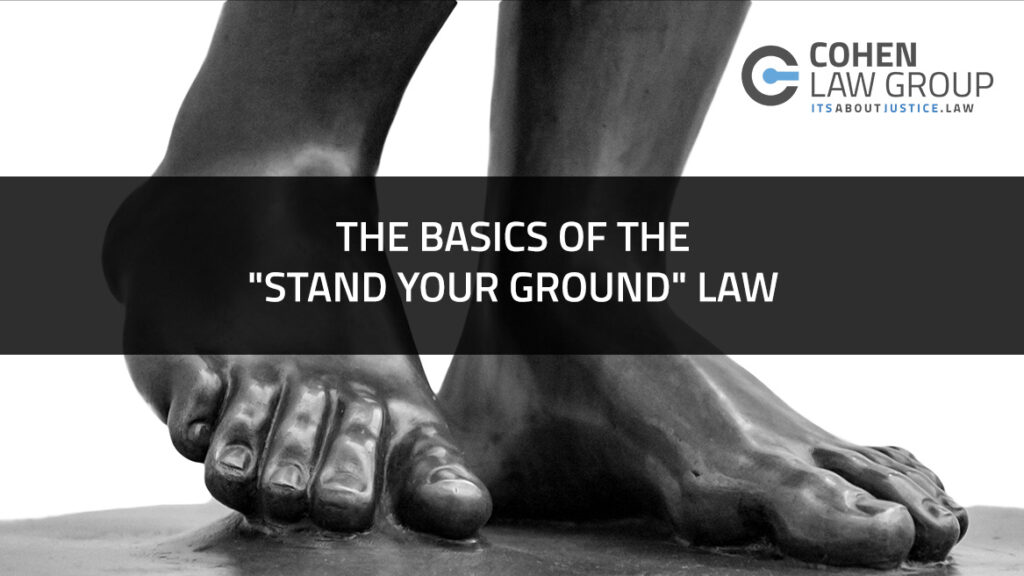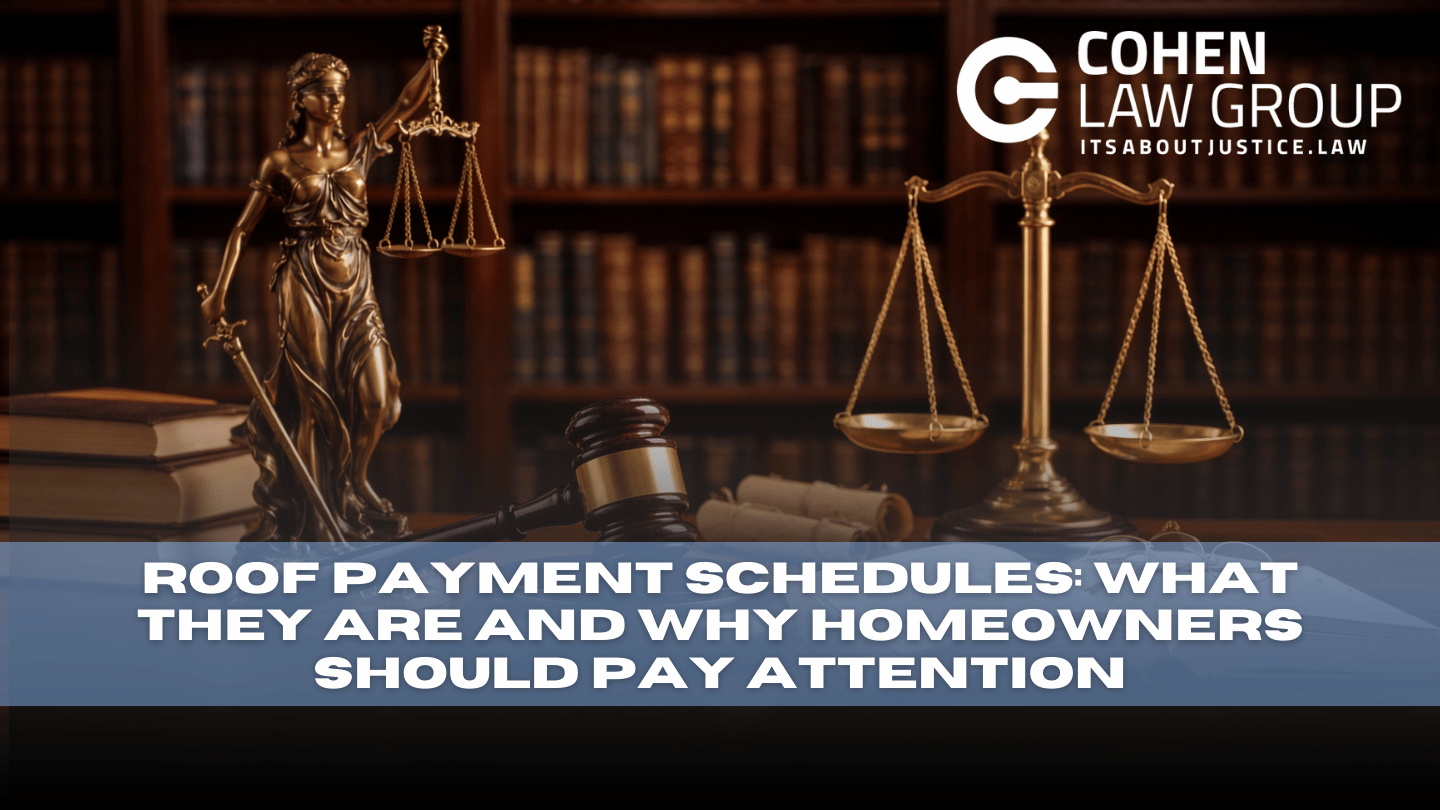The Basics of the “Stand Your Ground” Law
Florida Statute 776.013 states
776.013
(1) A person who is in a dwelling or residence in which the person has a right to be had no duty to retreat and has the right to stand his or her ground and use or threaten to use:
- Nondeadly force against another when and to the extent that the person reasonably believes that such conduct is necessary to defend himself or herself or another against the other’s imminent use of unlawful force; or
- Deadly force if he or she reasonably believes that using or threatening to use such force is necessary to prevent imminent death or great bodily harm to himself or herself or another or to prevent the imminent commission of a forcible felony.
(2) A person is presumed to have a reasonable fear imminent period of death or great bodily harm to himself or herself or another when using or threatening to use defensive force that is intended or likely to cause death or great bodily harm to another if:
- The person against whom the defensive force was used or threatened was in the process of unlawfully and forcefully entering or had unlawfully and forcibly entered, a dwelling, residence, or occupied vehicle, or if that person had removed or was attempting to remove another against that person’s will from the dwelling, residence, or occupied vehicle and (b) the person who uses or threatens to use defensive force knew or had reason to believe that an unlawful and forcible entry or unlawful and forcible act was occurring or had occurred.
A person Is justified in using non-deadly force if that person reasonably believes the conduct is necessary to defend himself or herself or another against the other’s imminent use of unlawful force.
The “Stand Your Ground Law” basically allows you to use deadly force (to shoot someone) if you fear for your life or are afraid of serious bodily injury. Additionally, the Stand Young Ground law does not require you to retreat before using deadly force. This means you are allowed to use deadly force even if you could have gotten away without being harmed.
In other words, you will not be charged with a crime if you kill someone because you had a reasonable fear you were going to be harmed, even if you could have gotten away safely from the situation.
The Florida legislature recently passed a law that shifted the burden in stand your ground cases from the defense to the prosecution. This means Defendants do not have to prove in pretrial hearings that they were defending themselves in order to avoid prosecution.
Florida law states that a reasonable fear of imminent death or great bodily harm is presumed if the deadly force is used against the person who was unlawfully entering, or had unlawfully gained entry into the person’s residence. This presumption is important because without it, a person would be required to prove he or she had a reasonable fear of imminent death or great bodily harm. With the presumption provided to a homeowner, the person claiming self-defense is assumed to have this reasonable fear, and thus will have less to prove in order to successfully claim self-defense.
According to Florida Statute, a person has the right to use or threaten to use force, except deadly force, against another person in order to prevent them from trespassing. In other words, you can use force to remove a trespasser, but you can’t use a gun to make someone move.
You cannot use deadly force to stop someone from simply trespassing on your property. would not apply to someone trespassing on your property.
According to 2019 Florida Statutes Chapter 776, “a person is justified in using or threatening to use deadly force if he or she reasonably believes that using or threatening to use such force is necessary to prevent imminent death or great bodily harm to himself or herself or another or to prevent the imminent commission of a forcible felony.”
In other words, you may use deadly force to defend yourself if you think you are in danger of being killed or seriously harmed by another person.
Florida Statute 776.012 states that a person can use or threaten to use non-deadly force to protect himself or herself when that person reasonably believes that doing so is imperative to defending himself or herself or another from an impending threat of unlawful force. And identifies self
Florida Statute 776.013 creates a presumption that anyone who illegally enters someone’s home or vehicle is presumed to have to intent of carrying out an unlawful act of force or violence, thus allowing the resident of the home to use deadly force to protect himself.
Deadly force can be used when defending your home against forcible entry or against a person attempting to commit a “forcible felony.” Examples of common “forcible felonies” include aggravated assault, sexual attacks, burglary, robbery, and murder.
According to Florida Statute 776.013 you may defend your home from anyone trying to gain access or entry to it by use of deadly force. In this case, you don’t need to retreat or fire a warning shot.
Permissible Use of Non-Deadly Force
Florida law provides that a person is justified in the use of non-deadly force against another person for the defense of property if (1) the other person was trespassing , (2) the land or personal property was lawfully in the person’s possession, or in the possession of his or her immediate family or household, or in the possession of some person whose property the defendant was under a legal duty to protect, and (3) the defendant reasonably believed that his or her use of force was necessary to prevent or terminate the other person’s wrongful behavior.
If the defendant is in his or her home or vehicle, then under Section 776.013, Florida Statutes, the law will presume that the defendant had a reasonable fear of imminent death or bodily harm if the alleged victim unlawfully entered or remained or attempted to remove another person against their will. A person who unlawfully and by force enters or attempts to enter another’s home or vehicle is furthermore presumed to be doing so with the intent to commit an unlawful act involving force or violence.
In determining whether the use of deadly force or non-deadly force was warranted, a jury will examine what a reasonable person would have done under the circumstances appearing to the Defendant at the time of the incident. Where the Defendant in a Florida criminal case presents any evidence of self-defense, the State must overcome the claim of self-defense beyond a reasonable doubt.
Residence means a dwelling in which a person resides either temporarily or permanently or is visiting as an invited guest.
Duty to Retreat
Duty to retreat is the expectation that person being threatened will make a reasonable attempt to escape before using deadly force.
Exceptions to Self Defense
A homeowner cannot shoot a law enforcement officer who has a valid reason to be on the property or is acting in the performance of his or her official duties. And identifies self.
A person cannot claim self-defense if he or she was using the residence to further criminal activity or is actively engaging in criminal activity.
Deadly force can’t be used against someone who had a legal right to be on the property or permission to enter the property.
The person sought to be removed is a child or grandchild or in the lawful custody of the person against whom the defensive force is used.
According to Florida Statue 776.041 self-defense is also not available where the evidence establishes that the Defendant initially provoked violence against himself. To claim self-defense in this scenario, the Accused must present sufficient evidence that the force used by the alleged victim was so great that the accused reasonably believed that he or she was in imminent danger of death or great bodily harm and that he or she had exhausted every reasonable means to escape such danger other than the use of force which is likely to cause death or great bodily harm to the assailant. Alternatively, the person who provokes the initial attack may nonetheless claim self-defense if: (1) in good faith, her or she withdrew from physical contact, (2) Clearly indicated to the other person that he or she desired to withdraw and terminate the use of force, and (3) Despite the communication and withdraw, the other person continued or resumed the use of force.
State v. Heckman
The creation of section 776.013 eliminated the burden of proving that the defender had a reasonable belief that deadly force was necessary by providing a conclusive presumption of such.
Under section 776.013, the person against whom the deadly force was used must have already unlawfully and forcibly entered the dwelling or must be in the process of unlawfully and forcibly entering.
“Dwelling” is defined as “a building or conveyance of any kind, including any attached porch…which has a roof over it…and is designed to be occupied by people lodging there at night.”
At the time Heckman used deadly force against Carroll, Carrol was not inside the garage or in the process of entering. Carroll was retreating from the garage to his vehicle, which he had almost reached. Thus, the facts before the court at the hearing on the motion to dismiss did not establish that Heckman was entitled to immunity under 776.032 for the use of force permitted under section 776.013.
Stieh v. State, 67 So.3d 275 (Fla. 2nd DCA 2011)
Hotel room, which defendant lawfully rented for the night, qualified as a dwelling or residence for purposes of statute governing justifiable use of force.
Although the question of whether a defendant acted in justifiable self-defense is generally a question for the jury, when the defense presents a prima facie case of self-defense, the state has the burden to prove beyond a reasonable doubt that the defendant did not act in self-defense. The state may meet its burden through rebuttal witnesses or by inference in its case in chief.
If the state fails to prove beyond a reasonable doubt that the defendant did not act in self-defense, after the defense presents a prima facie case of self-defense, the trial court is duty bound to grant a judgment of acquittal in favor of the defendant.
Self-defense cases are intensely fact specific, but where the evidence leaves room for two or more inferences of fact, at least one of which is consistent with the defendant’s hypothesis of innocence, it is not legally sufficient to make a case for the jury.
COHEN LAW GROUP
DISCLAIMER: This website is for informational purposes only and does not provide legal advice. Please do not act or refrain from acting based on anything you read on this site. Using this site or communicating with Cohen Law Group through this site does not form an attorney/client relationship. This site is legal advertising. Please review the full disclaimer for more information by clicking here.








